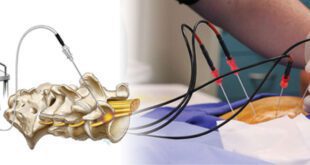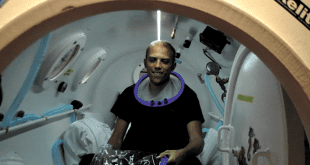Ulcers can occur in multiple areas of the body but are commonly diagnosed in the stomach. Do you ever have a burning sensation in your stomach or ongoing pain? Are these symptoms worsened when you’re hungry, and does it subside when you eat something? If you have pain, nausea, unexplained weight loss, dark stools, or vomiting, these could be warning indicators of an ulcer, and you should talk to your doctor about your symptoms.
We caught up with surgeon, Dr. Sachin Vaikunth to find out more about ulcers and what you should know.
H&W: What are the different types of ulcers that can occur?
Dr. Vaikunth: Ulcers can occur throughout the gastrointestinal tract as well as on the skin.
H&W: What causes stomach ulcers to form?
Dr. Vaikunth: Stomach ulcers form whenthe acid in the stomach damages the lining of the stomach wall. There is a protective layer of mucus that normally prevents the acid from damaging the lining. When the balance between the acid and the mucus layer is shifted towards the acid side, ulcers form.
A bacteria called Helicobacter pylori (H. pylori) can cause the amount of acid increase and it can help break down the protective mucus layer leading to ulcer formation; however, not everyone with H. pylori will develop ulcers.
Also, nonsteroidal anti-inflammatory drugs (such as ibuprofen or naproxen) will inhibit production of a substance that helps protect the inner lining of the stomach. Chronic use of these medications could lead to ulcer formation.
Additionally smoking cigarettes and drinking alcohol can make you more likely to form ulcers. It’sthought that stress and spicy foods do not cause ulcers, but they can make the ulcer worse and more difficult to treat.
H&W: What are the warning signs and symptoms?
Dr. Vaikunth: The most common symptom is pain. Additionally, sometimes people will get nausea and vomiting. They also may have bloating or indigestion.
Ulcers can at times lead to bleeding. If you have bleeding and vomiting due to ulcers, you could have emesis (vomit) that looks like coffee grounds, or it could look like blood. In addition, you could have dark black stools.
H&W: What treatments are available?
Dr. Vaikunth: Medications such as proton pump inhibitors (like pantoprazole or omeprazole) can inhibit stomach acid production. Also, another class of medications called histamine 2 blocker such as famotidine or ranitidine inhibit histamine activity in the stomach which contributes to acid formation.
Also, if the patient is found to have H. pylori. They’llbe given a cocktail of medications including antibiotics to eliminatethe H. pylori.
There are certain conditions where these treatment options listed above do not work. Patients in these cases will require surgery to treat ulcers or other complications.
H&W: What other complications can occur if ulcers are left untreated?
Dr. Vaikunth: If ulcers are left untreated, they can lead to bleeding which could potentially be life-threatening. Additionally, there’s a risk of developing a hole or perforation in the stomach which could also be life-threatening with leakage of stomach juices into the abdomen. This can lead to a severe infection and sepsis.
Untreated ulcers can also cause scarring or swelling in the stomach which prevents it from emptying effectively so that the food you eat is not able to pass into the small intestine. This leads to nausea and vomiting.
H&W: What are a few lifestyle changes that may help prevent stomach ulcers?
Dr. Vaikunth: Avoiding tobacco and alcohol can help improve your chances of avoiding ulcers. Additionally avoiding chronic use of nonsteroidal anti-inflammatories will help as well.
Reducing stress and avoiding spicy foods will help with symptoms and may improve your chance of healing your ulcer.
If you have symptoms, it’s time to talk your healthcare provider.
Dr. Sachin Vaikunth
Dr. Sachin Vaikunth is a board-certified general surgeon who has advanced training in minimally invasive laparoscopic, bariatric and robotic surgical procedures. He completed his undergraduate undergraduate degree in political science at Brown University in Providence, Rhode Island. He then earned his Doctor of Medicine, with honors, from the Vanderbilt University School of Medicine in Nashville, Tennessee. Dr. Vaikunth continued his medical education by completing a surgical residency at the University of Michigan Health System in Ann Arbor, Michigan. He then followed up with fellowship training in minimally invasive/bariatric surgery at the University of Pittsburgh Medical Center in Pittsburgh, Pennsylvania. Dr. Vaikunth’s clinical interests include striving to provide his patients with the most advanced and minimally invasive surgical procedures, and is known as an informative, approachable, and compassionate medical provider. An accomplished author, Dr. Vaikunth has contributed numerous articles to national peer reviewed publications. He is a member of the American College of Surgeons and the American Medical Association and, also certified in advanced cardiac life support and fundamentals of laparoscopic surgery. Dr. Vaikunth is affiliated with Morton Plant North Bay Hospital.
BayCare Medical Group General Surgery
6633 Forest Ave., Suite 205
New Port Richey, FL 34653
For more information or to schedule an appointment please visit DrSachinVaikunth.org
 Central Florida Health and Wellness Magazine Health and Wellness Articles of the Villages
Central Florida Health and Wellness Magazine Health and Wellness Articles of the Villages



